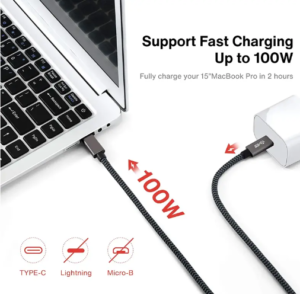
USB4 Cable Specifications: The Future of High-Speed Connectivity
Introduction As technology continues to evolve, the demand for faster, more efficient connectivity solutions has become critical for businesses and
Cable assemblies manufacturers need many different types of certification depending on the type of cables they are producing, what country they operate in, and who their customers are. Some world-known certifications that a cable assembly manufacturer may have include:
– ISO 9000 certification for quality management systems
– UL certifications for products safety
– IPC/WHMA A620 certification for wire and cable assemblies
– RoHS compliance certification to ensure all components are compliant with the Restriction of Hazardous Substances Directive
These certifications are offered by various organizations, such as UL, IPC, and RoHS. The requirements for obtaining these certifications vary depending on the organization. Generally, the manufacturer must demonstrate its ability to produce high-quality and safe cables. This is done through rigorous testing and inspections of the manufacturing process and finished products. Cable assembly manufacturers who have these certifications can be assured that they are producing a quality and safe product. Customers can also be confident that these certified manufacturers have met the highest standards in the industry.
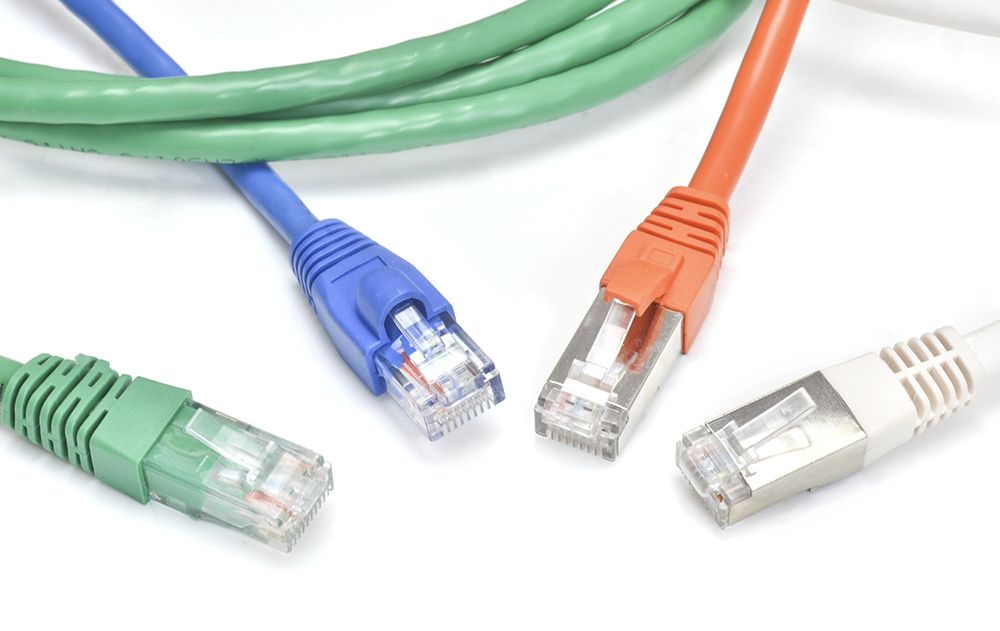
ISO 9000 is an internationally recognized quality management system that provides a framework for organizations to ensure the delivery of products and services that meet customer requirements and expectations. The certification verifies that all aspects of the organization’s operations are effectively managed, including design control, purchasing, production processes, and service.
– The company should be registered with a national standards body of the country they are based
– All processes and procedures should be documented in a Quality Manual that is kept up to date
– All products must be manufactured according to an established specification or drawing
– The company should have procedures for measuring product quality, including checking finished products against specifications and drawings. This procedure should cover: general appearance, dimensional accuracy (if specified), straightness (includes roundness), and surface finish (including corrosion resistance).
– Written instructions for inspection methods and test instruments; how they can be applied, performance standards, acceptance limits, sampling plans where appropriate, and the relationship between inspection points and sample sizes
– A procedure for dealing with nonconforming products, including identification, recording, investigation, and corrective action
Compliance with ISO 9000 helps companies become more efficient by reducing waste in manufacturing processes as well as improving communication between departments.

UL is an independent organization and one of the six Nationally Recognized Testing Laboratories (NRTLs) in the United States. UL tests and certifies electrical devices such as wire connectors used on cables assembled into harnesses or panels before they can be marketed in the United States. The UL Mark is a sign of safety, and its presence on a product or component lets users know that it has been tested and found to meet the specific requirements related to electrical safety. UL provides an extensive range of testing services, which includes third-party testing certification, labeling, and reporting.
– Manufacturers must demonstrate competency with UL Standards and Certification Services
– The products must undergo a third-party inspection to ensure safety and compliance
– The manufacturer must comply with all applicable regulatory requirements for product safety and performance
– The manufacturer must comply with the UL 1077, Consumer Safety Specification on Audio/Video assemblies
– The manufacture should also comply with UL (2009) and IEC (CISPR 12:2014) standards for audio/video assemblies
To obtain a UL certification, the manufacturer must submit their products to be tested. If the products pass the tests, the manufacturer is issued a certificate of compliance. The certificate indicates that the products have been tested and meet UL safety standards. The certificate is valid for a specific period and must be renewed if the products are to continue to bear the UL Mark.

The IPC/WHMA A620 certification is a cable assembly quality certification. This certification is offered by the IPC (Association Connecting Electronics Industries) and the WHMA (Wire Harness Manufacturers Association).
This certification is important because it assures customers that the products have been manufactured to rigorous quality standards. Additionally, it shows that the manufacturer has invested in training their employees and maintaining the appropriate equipment. Customers who require a high level of quality for their assemblies can rely on manufacturers with an IPC/WHMA A620 certification to meet industry specifications and design requirements.
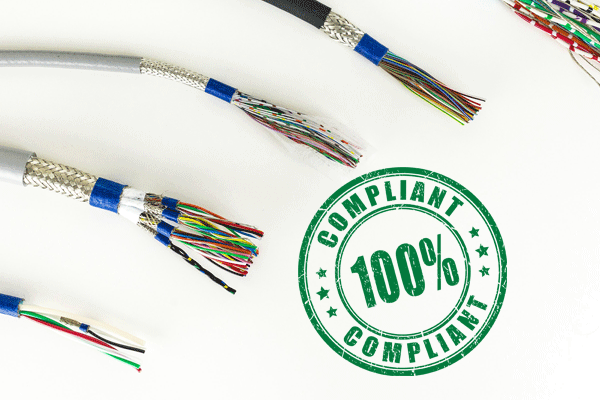
RoHS compliance certification involves a test on electronic equipment to determine the presence of materials deemed hazardous to the environment. RoHS stands for Restriction of Hazardous Substances. It is a set of European Union directives that require manufacturers and importers of certain electrical and electronic devices to demonstrate that the device would not pose an undue environmental or health risk if it was fully implemented in all areas of the world. The directive aims to restrict six toxic materials, including lead, mercury, cadmium, hexavalent chromium, polybrominated biphenyls (PBB), and polybrominated diphenyl ethers (PBDE).
The RoHS compliance certification requires manufacturers to produce products with less than the maximum concentrations allowed by the directive. The manufacturer needs to provide evidence that all the substances used in production comply with the directives (i.e.: declarations on materials used; data sheets).
The test for RoHS compliance is performed at different stages in the production chain, including incoming material control, final product analysis, and random sampling throughout the assembly process. It can be performed either as part of quality management or environmental management systems (EMS) programs required under ISO14001 or OHSAS18001 standards but must conform to European Union directive 2002/95/EC. Three tests need to be completed: a chemical test which checks if there are any hazardous substances in the product, a physical test to check if the product is fit for its intended use, and a leaching test which checks how much of a hazardous substance will be released from the product.
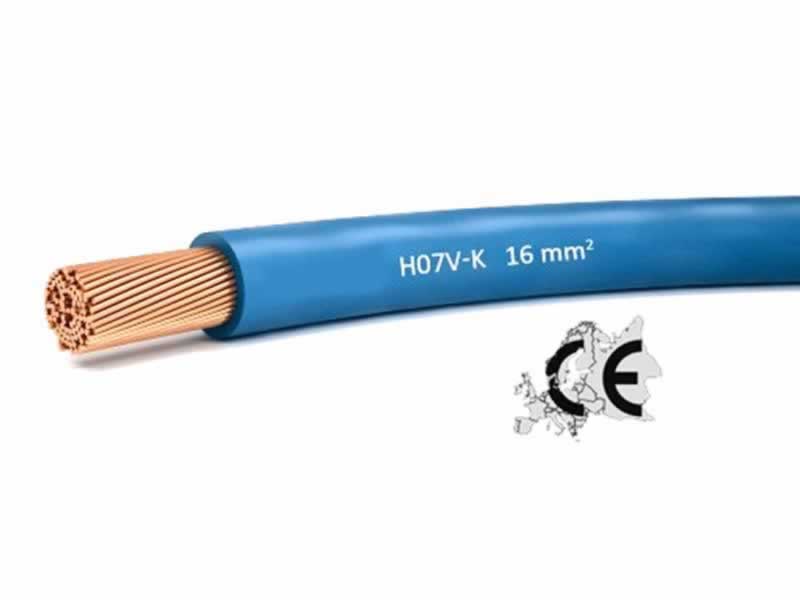
CE stands for Conformité Européenne (European Conformity) which ensures that a product meets certain health, safety, and environmental requirements when sold within Europe. The manufacturer or importer must demonstrate compliance through audits of their production facilities by an authorized third party such as SGS Group who offer a service called ‘product certification’. CE can also issue certificates based on results of tests conducted at independent laboratories that are recognized by national authorities responsible for metrology. Manufacturers earn the CE certification only after proving their product complies with essential requirements set forth in the CE directive, which outlines a number of product-specific safety requirements.
The general requirements for CE certification are that manufacturers must have a quality management system and put into place an effective corrective action/preventive action plan. They must also establish documented technical specifications and design files to ensure products meet all essential requirements, as well as keep records demonstrating compliance with the directive.

FCC (Federal Communications Commission) certification applies to any electronic device that emits radiofrequency energy such as computers, telecommunications equipment, broadcast equipment, Wi-Fi routers, etc. The FCC is the only body that can offer this certification and manufacturers must go through an authorized test lab to get their products certified.
For a product to be certified, it must comply with FCC’s technical standards which cover items such as emissions, radiation power levels, unintentional radiators, user controls, etc. To prove compliance, manufacturers need to submit test reports from accredited independent laboratories. Devices that pass these tests will receive an ‘FCC ID’ number which is placed on the product itself and its packaging.
Some certifications are specifically meant for professionals working in the cable assembly and wire harness industry. These credentials are earned after the successful completion of a certain certification program. The programs usually involve a training period and later an assessment to determine the knowledge and skills of the professional in a particular category. Many cable assembly suppliers have employees who are certified with one or more of the cable assembly credentials. Having certified professionals is a show of confidence that the workforce is highly qualified to produce cable and wire harness assemblies. One of the certificates for cable assembly professionals is the certified IPC specialist. Professionals who pursue this certification may receive training from a certified IPC trainer before they can take their assessment. However, it is worth noting that professional credentials validate skills for specific expertise. There are different credentials for engineers, cable installers, designers, among other cable assembly professions.
The importance of cable assembly certifications cannot be understated. They ensure that products meet quality and safety standards set by governing bodies. Without certifications, there is no way to guarantee that a product is safe for use or meets environmental protection requirements. They also help to protect the reputation of the manufacturer. Each certification has specific requirements that must be met in order to earn them. This includes inspections of the product at various stages of production. Certifications provide assurance to buyers that the products they are purchasing have been tested and verified by an independent organization.
Finding a qualified cable assembly supplier is not an easy task. Cable assembly is a complex and demanding field that requires extensive knowledge and experience. As such not many suppliers are able to produce high-quality cable assemblies. However, certifications offer a reliable way of scrutinizing cable assembly suppliers. Reputable cable and wire harness assembly suppliers have several certifications for their products. One such supplier is Edom Electronics. It is RoHS compliant, listed by UL, and also has certified employees. Visit their website to buy quality custom and standard cable assemblies.

Introduction As technology continues to evolve, the demand for faster, more efficient connectivity solutions has become critical for businesses and
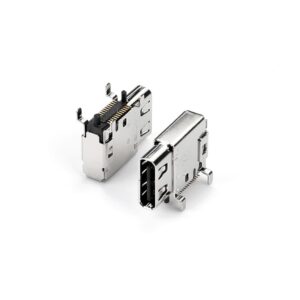
Understanding the Evolution of USB Connectors In today’s technology-driven world, USB (Universal Serial Bus) connectors are an integral part of
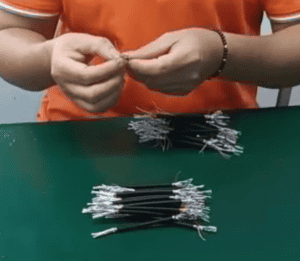
At EDOM Electronics, we take pride in our meticulous approach to manufacturing high-quality USB C to C cables. Today, we’re
WhatsApp us
